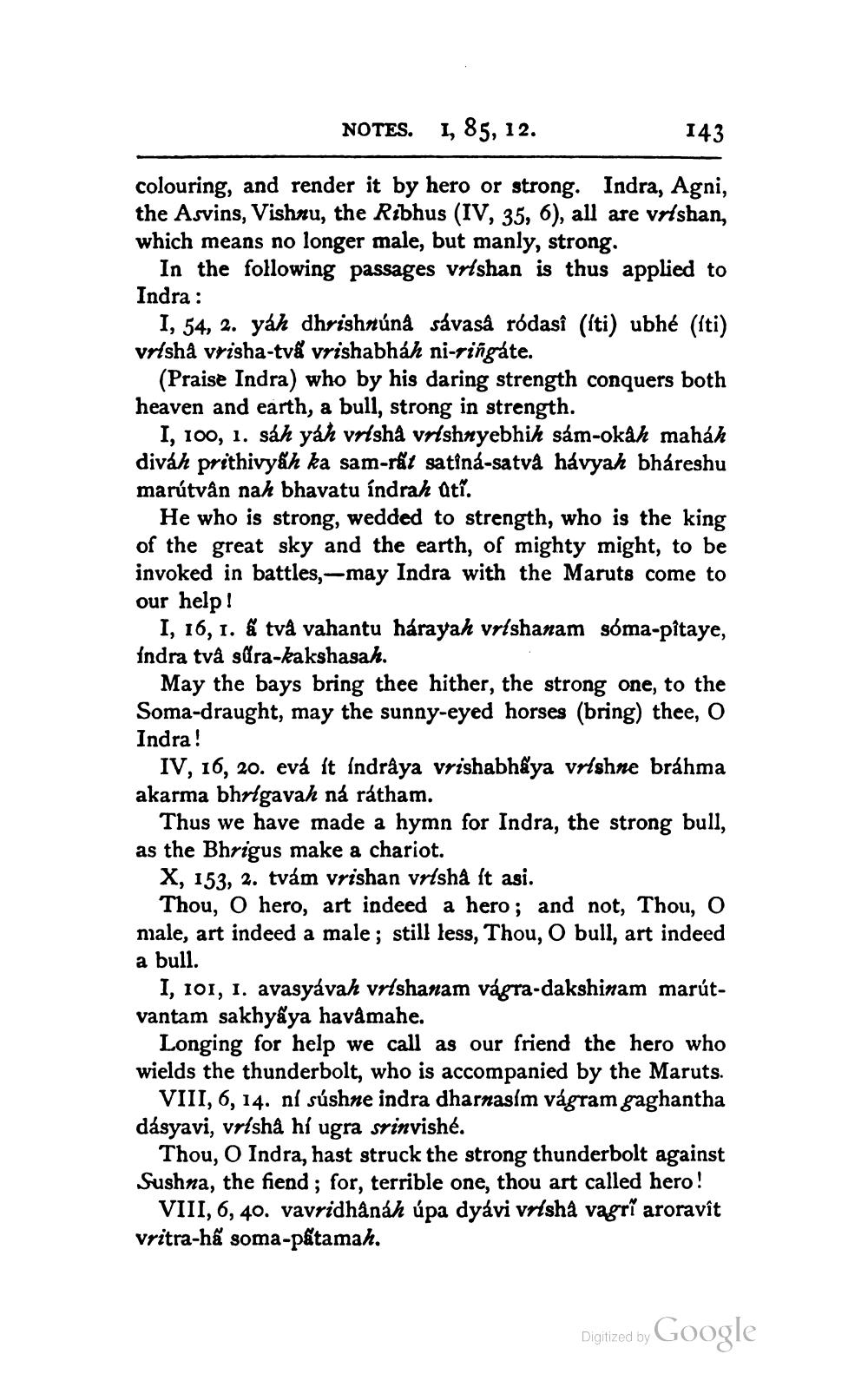________________
NOTES. 1, 85, 12.
143
colouring, and render it by hero or strong. Indra, Agni, the Asvins, Vishnu, the Ribhus (IV, 35, 6), all are vrlshan, which means no longer male, but manly, strong.
In the following passages vrlshan is thus applied to Indra:
I, 54, 2. yah dhrishnúna sávaså rodasî (Iti) ubhé (Iti) vrlshå vrisha-två vrishabháh ni-ringáte.
(Praise Indra) who by his daring strength conquers both heaven and earth, a bull, strong in strength.
I, 100, 1. sáh yah vrlshå vrlshnyebhih sám-okah mahah diváh prithivyäh ka sam-rât satiná-satvà hávyah bháreshu marútvån nah bhavatu indrah ati.
He who is strong, wedded to strength, who is the king of the great sky and the earth, of mighty might, to be invoked in battles,-may Indra with the Maruts come to our help!
I, 16, 1. á två vahantu hárayah vrlshanam sóma-pitaye, indra två süra-kakshasah.
May the bays bring thee hither, the strong one, to the Soma-draught, may the sunny-eyed horses (bring) thee, O Indra!
IV, 16, 20. evk ít Indraya vrishabhấya vrlshne brahma akarma bhrigavah na rátham.
Thus we have made a hymn for Indra, the strong bull, as the Bhrigus make a chariot.
X, 153, 2. tvám vrishan vrlshå st asi.
Thou, O hero, art indeed a hero; and not, Thou, O male, art indeed a male; still less, Thou, O bull, art indeed a bull.
I, 101, 1. avasyavah vrlshanam vágra-dakshinam marútvantam sakhyâya havåmahe.
Longing for help we call as our friend the hero who wields the thunderbolt, who is accompanied by the Maruts.
VIII, 6, 14. ní súshne indra dharnasím vágram gaghantha dásyavi, vrlshå hi ugra srinvishé.
Thou, O Indra, hast struck the strong thunderbolt against Sushna, the fiend; for, terrible one, thou art called hero!
VIII, 6, 40. vavridhânáh úpa dyávi vrlsha vagri aroravit vritra-hã soma-påtamah.
Digitized by
Digized by Google




